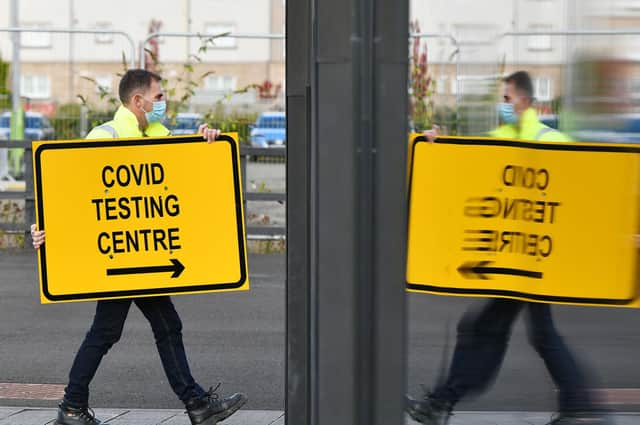Coronavirus testing: Boris Johnson's 'moonshot' isn't going well but Liverpool trial is a step in the right direction – Professor Harry Burns


This is particularly urgent with Covid-19 since it is now known there are many people who have no symptoms but are infected and able to spread the virus. So, the first step in controlling the disease is testing for it.
The UK's record in testing has not been great. Early in the pandemic, the government bought two million home test kits from China at a cost of £17 million. The Prime Minister promised they would be a game-changer. They might have been if they had worked. They didn't. Professor Alan McNally, of Birmingham University, who helped set up one of the first Lighthouse testing laboratories, said: "I think that you would have reduced fatalities substantially had we got testing in place earlier."
Advertisement
Hide AdAdvertisement
Hide AdIn early September, the "Moonshot Programme" was announced. It would see the testing of between two and four million people a day by December. Potentially 350,000 tests would be available for people without symptoms, helping suppression of local outbreaks.
They have some way to go. Testing in the UK is currently running at about 650,000 a day. Apparently, the number of people without symptoms being tested each day is currently less than 15,000.
The plan was described by the Prime Minister as "the only hope for avoiding a second national lockdown before a vaccine, something that the country cannot afford". By early 2021, ten million tests a day would be available. The plan was to allow people to attend high-risk settings such as sports events with a "digital passport" showing they had tested negative.
Providing such a programme was to cost £100 million with much of it spent on buying technology from the private sector. Public health infrastructure in England has been subject to reorganisations which have damaged its capacity to react to the pandemic.
Countries such as Germany and South Korea escaped the worst of the pandemic. They seem to have an effective pubic health lab network and this is probably one of the main reasons they were able to respond rapidly to the first wave of infection. They had the infrastructure to permit rapid expansion of testing. The UK didn't.
However, this week, we have, perhaps, seen a step in the right direction. It has been announced that Liverpool will pilot a programme of whole population testing. Using 2,000 military personnel and a test which gives results within an hour, the plan is to try to find the people spreading the virus and allow them to isolate themselves. One problem with almost all tests used to screen for illness is the issue of false-positive and false-negative results.
Most tests for Covid are sensitive and are 100 per cent effective in detecting someone carrying the virus. A false-positive test, however, is problematic. It is one which reports individuals are infected when, in fact, they are not. The test which is likely to be used in this trial will correctly detect infected cases 100 per cent of the time but some uninfected people may be asked to isolate after a false-positive test. It is a small price to pay if it suppresses the second wave and saves hundreds or thousands of lives.
A message from the Editor:
Thank you for reading this article. We're more reliant on your support than ever as the shift in consumer habits brought about by coronavirus impacts our advertisers.
If you haven't already, please consider supporting our trusted, fact-checked journalism by taking out a digital subscription.
Comments
Want to join the conversation? Please or to comment on this article.